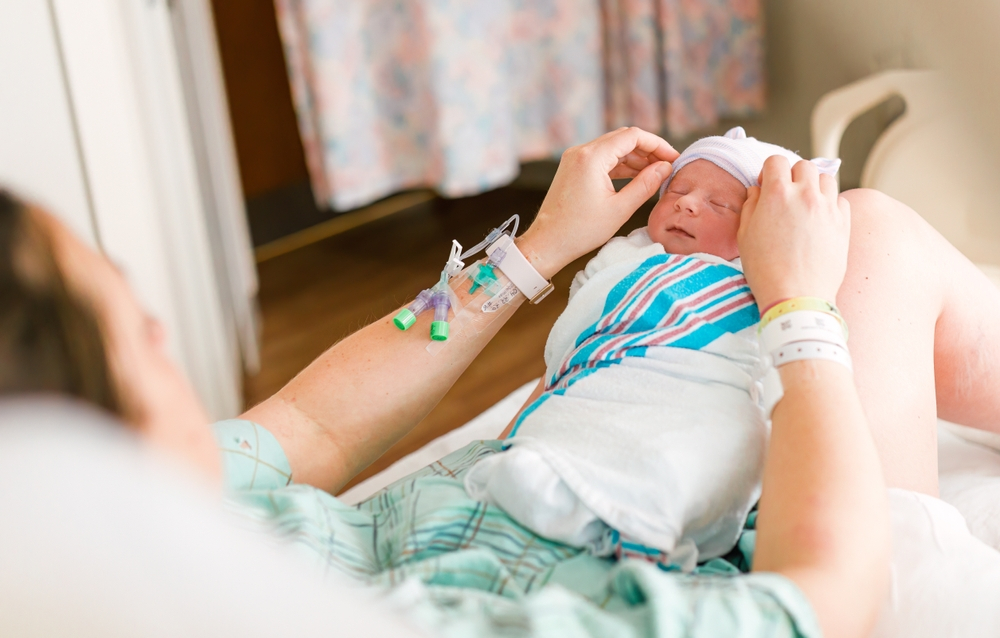
In a groundbreaking revelation, a comprehensive study published in The Lancet Global Health has unveiled the enduring health problems faced by more than a third of women globally after childbirth. This study, delving into complications persisting six weeks post-delivery, sheds light on conditions that are frequently relegated to the sidelines in discussions surrounding maternal health.
The Urgent Call to Prioritize Postpartum Well-being
The research serves as an urgent call to action, emphasizing the critical need to enhance the quality of life for women in the months and years following childbirth. Spearheaded by the World Health Organization (WHO) and institutions worldwide, the study underscores that many postpartum health conditions are inadequately acknowledged, leading to significant suffering in the daily lives of women.
Unraveling the Complications: A Closer Look
Pain during sex emerges as the most prevalent complication, impacting a substantial 35% of postpartum women. This issue introduces considerable stress for couples navigating the complexities of intimacy after the transformative experience of childbirth. The study also highlights common complications such as low back pain (32%), anal incontinence (19%), urinary incontinence (8-31%), anxiety (9-24%), depression (11-17%), perineal pain (11%), and fear of childbirth (6-15%). Notably, over a tenth of women experience secondary infertility, further accentuating the extensive impact of postpartum complications.
The Silent Suffering: Stigmas and Underrecognition
Dr. Pascale Allotey, Director of WHO’s Department of Sexual and Reproductive Health and Research, emphasizes that these conditions cause “considerable suffering” long after childbirth and are often “largely underappreciated, underrecognized, and underreported.” Cultural and political stigmas exacerbate the challenges faced by women and healthcare providers in addressing these chronic issues.
Broader Narratives: Women’s Health Disparities
The study contributes to a broader narrative surrounding women’s health, an area often overlooked. WHO highlights the greater barriers women face compared to men in accessing health information and services, ranging from a lack of awareness of specific health needs to discriminatory attitudes within communities and by healthcare providers.
A Special Series Emphasizing Maternal Healthcare
This report is part of a special series by The Lancet, supported by the United Nations’ Special Programme on Human Reproduction, WHO, and the US Agency for International Development. While celebrating progress in reducing maternal mortality, the authors emphasize the need to expand maternal healthcare, encompassing the period before and after pregnancy.

Beyond Maternal Mortality: Overlooking Chronic Complications
Despite strides in reducing maternal mortality, the study points out that many medium-term and long-term complications emerging after six weeks post-childbirth are often overlooked or completely ignored. Health providers, ill-equipped to address these chronic conditions, face challenges when women experience birth-related complications after postpartum care concludes.
Hurdles in Data: Scarcity and Prioritization
A significant hurdle highlighted in the report is the “scarcity of data,” particularly concerning common complications that are not prioritized from a public health perspective. This data gap is notably pronounced in low- and middle-income countries, where the scale of the burden is not fully understood.
The Call to Comprehensive Action
In conclusion, the authors call for a comprehensive response to these challenges, urging greater recognition, increased funding, and improved access to information. The “neglect” towards postpartum health issues, they argue, results in low visibility, inadequate financing, and a lack of collective effort.
Urgency for Holistic Maternal Health: A Global Imperative
As the global community strives to achieve comprehensive maternal health, the study serves as a poignant reminder that addressing postpartum complications is integral to ensuring the well-being and quality of life for women worldwide. The call to action resonates with the broader discourse on women’s health, advocating for increased awareness, equitable access to healthcare, and a concerted effort to eliminate the barriers women face in obtaining essential health services. The urgency is clear – a holistic approach that spans the entire spectrum of maternal health, encompassing the often-neglected postpartum period, is essential for achieving sustainable and inclusive healthcare for women.
Embracing a Holistic Vision for Women’s Health
In navigating the complex landscape of postpartum health, it becomes evident that a comprehensive and holistic approach is indispensable. The call to prioritize postpartum well-being, as illuminated by this groundbreaking study, beckons policymakers, healthcare providers, and societies worldwide to reevaluate existing paradigms. Beyond the immediate challenges, it underscores the imperative to dismantle stigmas, bridge healthcare disparities, and champion women’s rights in healthcare.
As we envision a future where women seamlessly transition into the postpartum phase with adequate support and understanding, the study serves as a catalyst for transformative change. The urgency is not only in recognizing the often-neglected complications but in fostering a collective commitment to robust healthcare policies, increased funding, and global awareness campaigns. Only through such concerted efforts can we aspire to create a world where every woman, regardless of geography or socio-economic background, experiences a postpartum period marked by comprehensive care, empowerment, and the safeguarding of her overall well-being.
Conclusion: A Pivotal Moment for Postpartum Health
In conclusion, this pivotal moment demands a reevaluation of our global commitment to postpartum health. The revelations brought forth by the study in The Lancet Global Health serve as a clarion call, urging us to break free from the historical neglect of postpartum complications. As we stand at the intersection of awareness and action, it is incumbent upon us to embark on a collective journey towards transformative change.
The urgency lies not only in acknowledging the silent suffering of countless women but in fundamentally reshaping healthcare paradigms. The postpartum period, often overshadowed, must emerge as a focal point of healthcare strategies globally. It is an opportunity to dismantle entrenched stigmas, address healthcare disparities, and amplify the voices of women who have endured, often silently, the enduring health challenges after childbirth.
As we chart a course forward, the call to action reverberates through healthcare corridors, policy chambers, and communities. Comprehensive postpartum care is not merely an aspiration; it is an essential component of our commitment to women’s health and well-being. The legacy we shape in response to this call will define the experiences of future generations of women worldwide.
Let this be the moment where we, as a global community, stand united in recognizing, addressing, and ultimately transforming the landscape of postpartum health. Through collective determination, empathy, and unwavering advocacy, we can pave the way for a future where every woman experiences the postpartum period as a time of healing, empowerment, and enduring well-being.
